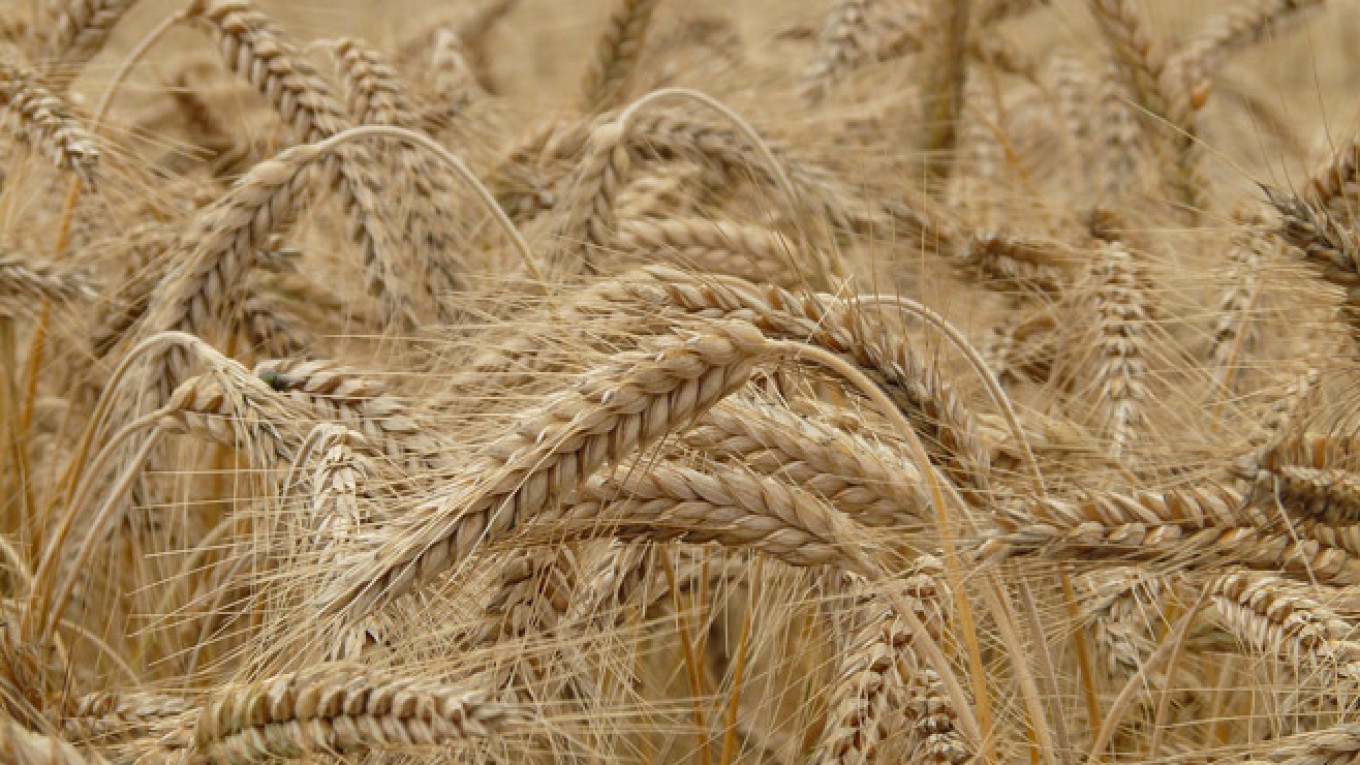UST-LABINSK — Farmers in Russia's southern breadbasket region of Krasnodar need rain forecast for the end of this week to materialize if they are to raise wheat yields from levels achieved last year.
Officials in Russia, one of the world's largest wheat exporters, expect to reap an overall grain crop of 100 million tons this year, which would help the country to maintain strong exports in the 2015-16 marketing year starting in July.
"Dry and hot weather is adding to risks as the plantings start the filling stage, but it will not significantly affect the crop as rains are expected this week," said Vladimir Zyuzin, the head of the agriculture department at the Kuban Agro farm.
Farmers at another farm in the area, Agrogard, said weather conditions have been worse than last year in general. "This year, May has been dry, but rains are expected toward the end of the week," said Dmitry Skrednik, an agronomist at Agrogard.
Light rains are expected in the region toward the end of this week, according to state weather forecaster Hydrometcenter.
If the expected wet weather does not materialize, yields could decline 15-20 percent, but Krasnodar, a key wheat export region, still has time for rainfall before harvesting starts in a month, said Tatyana Anisimova, another agronomist at Agrogard.
The wheat crop in Krasnodar region appears in good shape overall, though looking at the soil, it is clear the region needs more rain, said Karen Braun from the Lanworth analyst team at Thomson Reuters.
"Topsoil is very dry and there is some moisture further down, but the hot temperatures this week will particularly worsen soil moisture if rains don't materialize," she added. According to her data, moderate precipitation is expected by way of storms this weekend, though it may be very localized.
Kuban Agro expects a wheat yield in a range of 6.35 to 6.54 tons per hectare this year compared with 6.30 tons per hectare last year, Zyuzin said, adding that the yield at Kuban Agro is usually 10 percent higher than the average yield of the Krasnodar region.
Agrogard expects a yield of more than 6.0 tons per hectare compared with 6.25 tons a year ago.
A Message from The Moscow Times:
Dear readers,
We are facing unprecedented challenges. Russia's Prosecutor General's Office has designated The Moscow Times as an "undesirable" organization, criminalizing our work and putting our staff at risk of prosecution. This follows our earlier unjust labeling as a "foreign agent."
These actions are direct attempts to silence independent journalism in Russia. The authorities claim our work "discredits the decisions of the Russian leadership." We see things differently: we strive to provide accurate, unbiased reporting on Russia.
We, the journalists of The Moscow Times, refuse to be silenced. But to continue our work, we need your help.
Your support, no matter how small, makes a world of difference. If you can, please support us monthly starting from just $2. It's quick to set up, and every contribution makes a significant impact.
By supporting The Moscow Times, you're defending open, independent journalism in the face of repression. Thank you for standing with us.
Remind me later.


